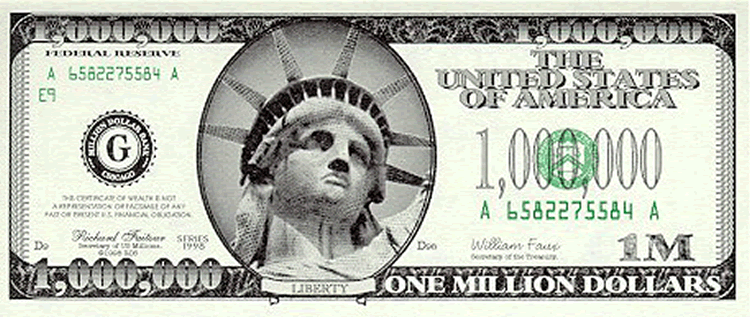That was the challenge set to me by Diane, one of the applicants to my 7 Millionaires … In Training! ‘grand experiment’ in response to a post that I wrote, exploding the myth of diversification that the the 401k jockeys seem to hold on to so dearly … I guess that their financial lives do depend upon it 😉
In that post I said that “diversification is only a mid-term saving strategy ..”.
Why?
As I mentioned in that post: “it automatically limits you to mediocre returns: The Market – Costs = All You Get … period!”
But, Diane is right: a key question is market timing. For example, does diversification help you over shorter time frames? Define short, medium, long … ?
Well, typically financial texts will define short term as anything less than 1 to 5 years; medium as anything between 5 and 10 years; and long-term 10 years+
But, it depends upon who you speak to: Warren Buffett would probably define short-term as anything less than ‘for ever’ … because that’s how long he aims to hold his acquisitions for, and often regrets having sold out of other positions too ‘soon’.
He is also reported as saying that he wouldn’t care if the stock market was only open once every 5 years.
But, I have a different viewpoint, and it begins with a question that I posed to Diane:
Di, the ‘pat’ answer is MINIMUM 10 years. The real answer is: depends why you need to know?
Let’s say that you found an individual stock that you want to buy; when I set out to do this, I set no minimum/maximum time-frame that I would hold the stock for. For me, the holding term is entirely driven by price …
… when I buy the stock, it’s only because I believe that it is well undervalued and the underlying business is one that I understand and love. I’m buying the stock and patiently waiting for the market to catch up with my thinking.
When the market eventually does catch up … I’m outta there!
That process can take months or years … if it takes years, then I am reevaluating how ‘cheap’ the stock still is every time an annual report comes out (if the company’s financials no longer make the current price look cheap, then I am outta there early … whether I need to book a profit or a loss).
So, time-frame is just not an issue here …
But, when I ask this question of others, most people are aiming to ensure that they are building their retirement nest-egg correctly, so for them time-frame seems more important … and it is.
When you plan for retirement, you need to work backwards:
1. How much do I need to ‘earn’ as a replacement-salary from my investments in retirement?
2. How big does my supporting nest egg need to be?
3. How long before I want to stop working?
4. What market return can I bank on getting for that period?
5. Therefore, how much do I need to sock away (in lumps and/or dribs and drabs) to ensure that I get to #2 by #3?
You will most definitely need someone to crunch these numbers for you … just make sure that they crunch the numbers that you provide for #1 thru’ #4, not just the numbers that they will try and ‘sell you’!
Because, ‘they’ will tell you:
… well LONG-TERM the market has RETURNED an AVERAGE of 12% -14% on stocks and only … yada yada …
The problem is that YOU are most certainly not AVERAGE and YOU only get ONE SHOT at this nest-egg-building business. Unless, you can find a way to turn back time and try again 😉
So, you need to choose ‘guaranteed’ numbers for #4 …
Here’s where I like the research that Paul Grangaard did for his excellent book, The Grangaard Strategy, specifically aimed at planning for (Book # 1) and living in (Book # 2) retirement:
Using the research done by Ibbotson Associates (published annually in their authoritative ‘Stocks, Bonds, Bills, and Inflation® Valuation Edition Yearbook’), Grangaard found that over the 75 year period between 1926 and 2000, large cap stocks averaged and annual return of 11% (small cap stocks did a little better at 12.4%), but he also found:
The average annual return [through that 75 period] bounced around all over the place, just like you would expect – between a high of 54% in 1933 and a low of negative 43.3% percent in 1931.
So, clearly planning on holding stocks for just one year has to be counted as extremely short term.
However, if we hold those same stocks for just 5 years, Paul tells us that we get a 6i% reduction in volatility …
… this means that every 5 years period within that time frame (e.g. 1926 to 1931; 1927 to 1932; etc.) still has a chance of being wildly different to the average, but 61% ‘less wildly’ than simply holding a stock for 1 year.
And, it makes sense: wouldn’t your 5 year return have been dramatically different if you bought at the end of 2001 and sold at the end of 2006 than if you bought at the end of 2002 and sold at the end of 2007?
10 year holding periods reduce volatility by 83%; interestingly, we need to move to 30 years before we see another major reduction in volatility (20 years is only few points lower in volatility than 10 years) …
… even so, holding stocks for 30 years means that we should achieve the 11% average return on large cap stocks; but there is still some significant volatility; Paul says:
The best thirty-year holding period delivered a 13.7% average annual rate of return between 1970 and 1999, while the worst thirty-year period delivered an average annual rate of 8.5% between 1929 and 1958.
So, while your “odds” may be high that you will get an average 11% return over 30 years, who do you want to be?
The guy who invested $100,000 and locked it away for 30 years for a ‘safe, secure retirement’ in 1970? 1929? or in an ‘average’ year? Let’s see:
| Worst 30 Year Return |
$ 1,065,277 |
| Average 30 Year Return |
$ 2,062,369 |
| Best 30 Year Return |
$ 4,140,507 |
It’s clear that you would be stupid to ‘bet’ your retirement on ending up with $4 Mill. (BTW: a lovely number … worth about $1.3 Mill. in today’s dollars, if inflation averages just 4% over that period).
But, I equally think that you would be stupid to bank on $2 Mill. either …
… I would use 8.5% in all of my retirement calculations, because 75 years of history (including buying the day before the biggest crash in Wall Street History, then holding regardless for the next 30 years) says that’s what I will get … not might get, and certainly not hope to get.
And, I will be thankful if I am mildly pleasantly surprised … and ecstatic if I end up winning the Wall Street Lottery!
So, let’s look at time frames in terms of what Wall Street will ‘guarantee’ me:
If I hold for ….. I will get (as a minimum):
| 10 Years |
-0.9% |
| 20 Years |
4.0% |
| 30 Years |
8.5% |
So, Di, in terms of being certain of your retirement nest-egg; I’d have to say that 30 years is long-term.
20 years doesn’t even keep up with inflation (4%) and mutual fund fees (1%) … and, anything LESS than 20 years is down-right dangerous!
That’s why gambling on Mr Market for my retirement wasn’t even a consideration for me. How about you?
Now, what number will you be plugging into your #4?
 Last week I gave some unsolicited advice to those who may have finished 6th, 7th, 8th, or 9th in last years’s World Series of Poker – Main Event – pocketing a tidy sum in the range of $1.2 to $1.5 million.
Last week I gave some unsolicited advice to those who may have finished 6th, 7th, 8th, or 9th in last years’s World Series of Poker – Main Event – pocketing a tidy sum in the range of $1.2 to $1.5 million.




